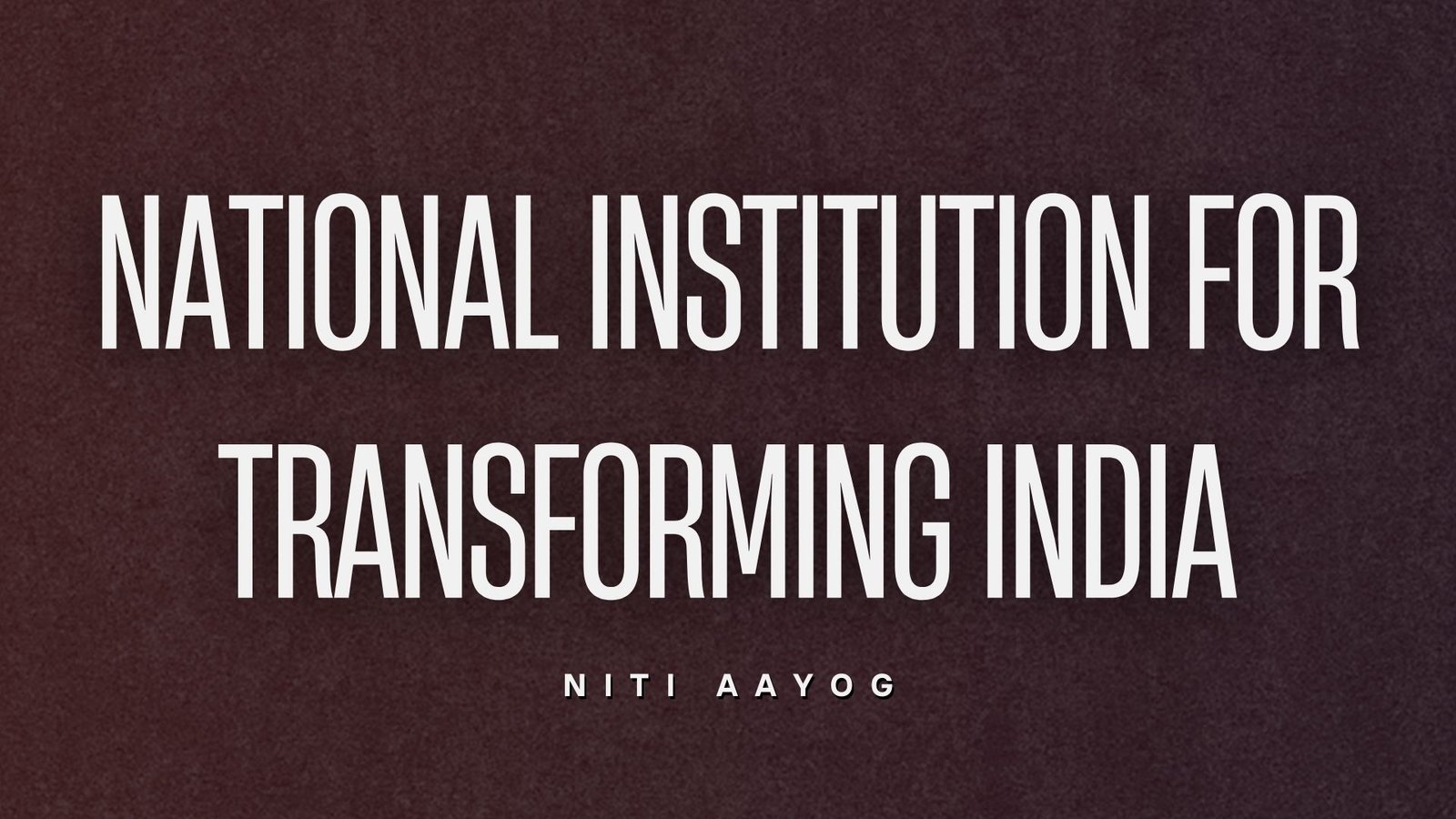On this page you will read detailed information about State Public Service Commission.
As an informed citizen of India, you may have heard of State Public Service Commissions, but do you truly understand their crucial role in governance? These constitutional bodies serve as the backbone of civil service recruitment and administration at the state level. In this article, you will gain insight into the structure, functions, and significance of State Public Service Commissions across India. By exploring their responsibilities in selecting qualified candidates for various government positions, you will appreciate how these institutions contribute to maintaining a competent and efficient bureaucracy. Understanding the inner workings of these commissions is essential for anyone interested in India’s administrative framework and public service sector.
What is the State Public Service Commission (SPSC)?
The State Public Service Commission (SPSC) is a constitutional body established under Articles 315-323 of the Indian Constitution. Similar to the Union Public Service Commission (UPSC) at the national level, each state in India has its own SPSC to oversee recruitment and management of civil services at the state level.
Structure and Appointment
The SPSC consists of a chairperson and other members appointed by the state governor. Members typically serve a term of six years or until they reach the age of 62, whichever comes first. This fixed tenure promotes stability and consistency in decision-making. The governor has discretion over the commission’s strength, but members must have held office under the Union or state government for at least half their tenure.
Key Functions and Responsibilities
The primary functions of the State Public Service Commission include:
- Conducting competitive examinations for recruitment to various state civil services
- Providing consultation on matters related to recruitment, appointments, and promotions
- Assisting in disciplinary actions against civil servants
- Advising the state government on personnel management issues
The SPSC is considered the watchdog of the merit system in the state’s civil services, ensuring fairness and transparency in the recruitment process.
Independence and Challenges
To maintain its autonomy, the SPSC’s expenses are charged to the Consolidated Fund of the state, and the conditions of service for its members cannot be varied after appointment. However, the commission faces several challenges, including:
- Bureaucratic delays and resource constraints
- Allegations of favoritism and corruption
- Political interference
- Gaps in capacity building and training of staff
Addressing these issues and ensuring transparency and accountability are ongoing concerns for SPSCs across India.
History and Formation of SPSCs in India
Origins in Colonial Era
The roots of State Public Service Commissions (SPSCs) in India can be traced back to the colonial era. The Government of India Act of 1919 first provided for the creation of Public Service Commissions in provinces, laying the groundwork for what would eventually become the modern SPSCs. This marked a significant step towards establishing a structured system for civil service recruitment at the provincial level.
Constitutional Recognition
After India gained independence, the concept of SPSCs was formalized in the Constitution. Article 315 of the Indian Constitution officially established State Public Service Commissions as constitutional bodies. This move elevated the status of SPSCs and ensured their role in maintaining a merit-based civil service system across the country.
Early Implementations
The first State Public Service Commission was established in Bengal in 1937, with Smt. Piyali Sengupta serving as its inaugural chairman. This pioneering commission set the stage for other states to follow suit, gradually leading to the establishment of SPSCs across India. The formation of these commissions represented a significant step towards decentralizing the recruitment process for state civil services.
Evolution and Expansion
As India’s federal structure evolved, so did the role and importance of SPSCs. Each state now has its own Public Service Commission, with headquarters typically located in the state capital. These commissions have become integral to the state administrative machinery, responsible for recruiting and managing civil servants at the state level. The expansion of SPSCs across India reflects the country’s commitment to maintaining a professional and efficient civil service system tailored to each state’s unique needs.
Role and Functions of State Public Service Commissions
Constitutional Mandate and Independence
The State Public Service Commission (SPSC) is a crucial constitutional body established under Articles 315-323 of the Indian Constitution. Similar to the Union Public Service Commission (UPSC) at the central level, SPSCs operate independently in each state to ensure fair and efficient administration of state government posts. The Governor appoints SPSC members, who serve fixed terms of 6 years or until age 62, whichever comes first. This structure guarantees a high degree of autonomy, as their service conditions cannot be altered post-appointment.
Primary Responsibilities
The State Public Service Commission plays a vital role in shaping the state’s civil services. Its core functions include:
- Conducting competitive examinations for various state civil service positions
- Advising the state government on recruitment policies, promotions, and disciplinary actions
- Upholding meritocracy in the selection process
- Monitoring examinations to prevent malpractice
These responsibilities ensure that the SPSC acts as a watchdog for the merit system in state bureaucracy, promoting fairness and transparency.
Consultation and Advisory Role
The Constitution mandates that SPSCs must be consulted on matters related to civil services, including:
- Methods of recruitment
- Principles for appointments, promotions, and transfers
- Suitability of candidates for these positions
- Disciplinary matters affecting civil servants
While their recommendations are not binding, this advisory role is crucial in maintaining the integrity of the state’s administrative machinery.
Challenges and Reforms
Despite their significance, SPSCs face several challenges, including bureaucratic delays, resource constraints, and allegations of favoritism. To address these issues, some states have initiated reforms, such as streamlining processes and leveraging technology. Additionally, the concept of Joint State Commissions (JSCs) has emerged, allowing two or more states to establish a unified Public Service Commission, optimizing resources and enhancing efficiency in the recruitment process.
In the previous post, we had shared information about The Important Role of the Election Commission of India, so read that post also.
Examinations Conducted by SPSCs
The State Public Service Commissions (SPSCs) play a crucial role in the recruitment process for various state government positions. These constitutional bodies are responsible for conducting a wide range of competitive examinations to select the most qualified candidates for different roles within the state civil services.
State Civil Services Examination
The flagship examination conducted by SPSCs is the State Civil Services Examination. This rigorous test is designed to recruit candidates for prestigious administrative positions within the state government. According to the Public Service Commission website, the exam typically consists of three stages: a preliminary exam, a main written exam, and a personal interview round. The syllabus covers diverse subjects, including general knowledge, English, reasoning, and state-specific topics.
Specialized Service Examinations
In addition to the general civil services exam, SPSCs also conduct specialized examinations for specific branches of state services:
- State Forest Services Examination: This exam recruits candidates for various positions within the state’s forest department.
- State Police Services Examination: Aspiring law enforcement officers can apply for this exam to join the state police force.
- Judicial Services Examination: For those interested in the legal field, this exam opens doors to positions within the state judiciary.
Technical and Non-Gazetted Posts
SPSCs are also responsible for conducting examinations for a wide array of technical and non-gazetted positions within the state government. These may include roles such as state tax inspectors, assistant section officers, auditors, medical officers, and engineers. The specific exams and positions vary from state to state, reflecting the unique needs and structure of each state’s administration.
By conducting these diverse examinations, State Public Service Commissions ensure a fair and competitive selection process for various government positions, contributing to the efficient functioning of state administrations across India.
Eligibility Criteria to Appear for SPSC Exams
Age Requirements
To be eligible for State Public Service Commission (SPSC) exams, candidates must meet specific age criteria. Generally, the minimum age to appear for these exams is 21 years, while the maximum age is typically 40 years. However, it’s important to note that age limits may vary slightly between different states. Many SPSCs offer age relaxations for certain categories of candidates, such as those belonging to SC/ST/OBC groups, skilled athletes, or physically challenged individuals.
Educational Qualifications
The State Public Service Commission exams require candidates to possess a minimum educational qualification. In most cases, a bachelor’s degree from a recognized university or an equivalent qualification is mandatory. Some specific posts within the state civil services may have additional educational requirements. For instance, positions like Assistant Conservator of Forest or Deputy Superintendent of Police might demand specialized degrees or certifications.
Residency and Domicile
Candidates applying for SPSC exams must typically be residents or have a domicile in the respective state. This requirement ensures that local candidates have the opportunity to serve in their home state’s administrative positions. To claim benefits such as reservation or age relaxation, proof of domicile is often necessary.
Other Criteria
Several other factors may affect a candidate’s eligibility for State Public Service Commission exams. For example, individuals with more than one living spouse are generally not eligible, unless granted an exemption by the state governor. Additionally, some states may have specific health-related criteria, such as temporary ineligibility for candidates who are more than 12 weeks pregnant.
It’s crucial for aspiring candidates to thoroughly review the official notification of their respective State Public Service Commission for the most accurate and up-to-date eligibility criteria, as these may vary from state to state and can be subject to change.
How to Apply for SPSC Recruitment Exams
Check Eligibility and Exam Notification
Before applying for State Public Service Commission (SPSC) recruitment exams, it’s crucial to verify your eligibility. Typically, candidates must be between 21-40 years old, have a minimum of a high school diploma, and be residents of the state. However, these criteria can vary by state, so always check the specific requirements for your chosen SPSC.
Keep an eye out for exam notifications, which are usually published on the official SPSC website and in local newspapers. These notifications provide essential details about the application process, exam pattern, and important dates.
Submit Your Application
Once you’ve confirmed your eligibility, it’s time to submit your application. The application process for most SPSCs has moved online, making it more convenient for candidates. Here’s what you need to do:
- Visit the official website of your state’s PSC.
- Fill out the online application form accurately.
- Upload required documents, such as proof of age, educational qualifications, and residency.
- Pay the application fee through the provided online payment gateway.
Remember to double-check all information before submission, as errors could lead to disqualification.
Prepare for the Exam
After successfully submitting your application, start preparing for the exam. SPSC exams typically follow a two-tier selection process:
- Preliminary exam: A multiple-choice screening test covering general knowledge and current affairs.
- Main exam: Subjective papers testing your knowledge in various subjects.
To maximize your chances of success:
- Study the exam syllabus thoroughly.
- Practice with previous years’ question papers.
- Stay updated on current affairs.
- Improve your language and analytical skills.
- Consider seeking help from subject experts if needed.
Remember, many candidates prepare for both UPSC and SPSC exams simultaneously due to significant syllabus overlap. This approach can be efficient but requires careful time management.
By following these steps and dedicating yourself to thorough preparation, you’ll be well-positioned to tackle your State Public Service Commission recruitment exam with confidence.
Preparing for SPSC Examinations
Understanding the Exam Structure
Preparing for State Public Service Commission (SPSC) examinations requires a comprehensive approach. The syllabus and pattern of SPSC exams are similar to UPSC exams, but with a focus on state-specific topics. Familiarize yourself with the exam structure, including the number of papers, marking scheme, and time allotted for each section. This knowledge will help you strategize your preparation effectively.
Mastering the Syllabus
To excel in SPSC examinations, you must have a thorough understanding of the syllabus. Start with NCERT and state board books to build a strong foundation. Pay special attention to state-specific topics, as these often form a significant part of the exam. Create a study schedule that covers all subjects, allocating more time to areas where you need improvement.
Practicing with Previous Year Papers
Solving previous year question papers is crucial to familiarize yourself with the exam pattern and types of questions asked. This practice will help you identify your strengths and weaknesses, allowing you to focus your efforts where they’re most needed. Analyze the questions and answers carefully to understand the examiners’ expectations.
Staying Updated with Current Affairs
Maintaining familiarity with regional and national media is mandatory for SPSC aspirants. Stay updated on current events, government policies, and socio-economic issues relevant to your state. Regularly read newspapers, magazines, and reputable online sources to broaden your knowledge base.
Forming Study Groups
Creating peer groups for discussions and mock tests can significantly enhance your preparation. Engage in group discussions to clarify doubts and gain new perspectives. Participate in mock exams to simulate the actual test environment and improve your time management skills.
Remember, perseverance and efficiency are key to success in SPSC exams. Maintain a consistent study routine and stay motivated throughout your preparation journey. With dedication and the right approach, you can maximize your chances of clearing the State Public Service Commission examination.
SPSC Exam Pattern and Syllabus
Understanding the State Public Service Commission (SPSC) exam pattern and syllabus is crucial for aspiring candidates. The SPSC conducts various examinations to recruit qualified individuals for different positions within the state government. Let’s delve into the key aspects of the SPSC exam structure and curriculum.
Exam Pattern
The SPSC exam typically consists of multiple stages, designed to assess candidates’ knowledge and skills comprehensively. While the exact pattern may vary depending on the specific state and position, it generally includes:
- Preliminary Examination: A screening test to shortlist candidates for the main examination.
- Main Examination: A more detailed written test covering various subjects.
- Interview/Personality Test: An in-person assessment of the candidate’s suitability for the role.
Syllabus Overview
The SPSC syllabus covers a wide range of topics to evaluate candidates’ overall knowledge and aptitude. Some common subjects included in the State Public Service Commission exams are:
- General Studies: Covering history, geography, polity, economics, and current affairs.
- State-specific topics: Focusing on the history, culture, and current issues of the particular state.
- General English or regional language proficiency.
- Quantitative Aptitude and Reasoning.
- Optional subjects: Depending on the specific exam and position.
It’s important to note that the syllabus may vary across different states and for different positions. Candidates should always refer to the official SPSC website of their respective state for the most up-to-date and accurate information regarding the exam pattern and syllabus.
Preparation Strategy
To excel in the SPSC exam, you should:
- Thoroughly understand the exam pattern and syllabus.
- Create a structured study plan covering all subjects.
- Focus on state-specific topics and current affairs.
- Practice previous years’ question papers and mock tests.
- Develop strong analytical and writing skills for the main examination.
By familiarizing yourself with the SPSC exam pattern and syllabus, you can tailor your preparation strategy effectively and increase your chances of success in this competitive examination.
Frequently Asked Questions About State Public Service Commission
A State Public Service Commission is a constitutional body established under Part XIV of the Indian Constitution (Articles 315-323). These commissions play a crucial role in the recruitment and selection of civil servants for various state government positions. They ensure a fair and transparent process in public service appointments.
The Governor of the state appoints the Chairman and members of the State Public Service Commission. The number of members in each commission is determined by the Governor, allowing flexibility based on the state’s needs.
The Chairman and members of the State Public Service Commission serve for a term of 6 years or until they reach the age of 62, whichever comes earlier. This fixed tenure ensures stability and continuity in the commission’s operations.
Candidates can apply for positions through the State Public Service Commission by following these steps:
1. Regularly check the commission’s official website for vacancy notifications.
2. Thoroughly review the notification details before applying.
3. Submit an online application and pay the required fee.
4. Prepare for the selection process, which may include written exams and interviews.
It’s important to note that while candidates from other states can apply, they may only be considered for unreserved vacancies in most cases.
Conclusion
As you have learned, State Public Service Commissions play a vital role in India’s governance structure. These bodies are essential for maintaining a merit-based civil service system at the state level, ensuring fair and transparent recruitment processes. By understanding their functions, composition, and challenges, you gain valuable insight into the complexities of public administration in India. Moving forward, it is crucial to support efforts to strengthen these institutions, address existing inefficiencies, and promote greater transparency. A robust and effective State Public Service Commission is fundamental to good governance and the delivery of quality public services to citizens across India’s diverse states.
Disclaimer
The information and services on this website are not intended to and shall not be used as legal advice. You should consult a Legal Professional for any legal or solicited advice. While we have good faith and our own independent research to every information listed on the website and do our best to ensure that the data provided is accurate. However, we do not guarantee the information provided is accurate and make no representation or warranty of any kind, express or implied, regarding the accuracy, adequacy, validity, reliability, availability, or completeness of any information on the Site. UNDER NO CIRCUMSTANCES SHALL WE HAVE ANY LIABILITY TO YOU FOR ANY LOSS OR DAMAGE OF ANY KIND INCURRED AS A RESULT OR RELIANCE ON ANY INFORMATION PROVIDED ON THE SITE. YOUR USE OF THE SITE AND YOUR RELIANCE ON ANY INFORMATION ON THE SITE IS SOLELY AT YOUR OWN RISK. Comments on this website are the sole responsibility of their writers so the accuracy, completeness, veracity, honesty, factuality and politeness of comments are not guaranteed.
So friends, today we talked about State Public Service Commission, hope you liked our post.
If you liked the information about State Public Service Commission, then definitely share this article with your friends.
Knowing about laws can make you feel super smart ! If you find value in the content you may consider joining our not for profit Legal Community ! You can ask unlimited questions on WhatsApp and get answers. You can DM or send your name & number to 8208309918 on WhatsApp








